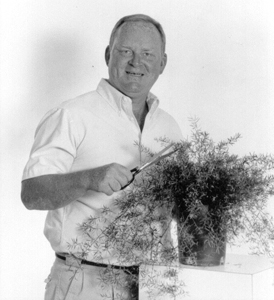LATE SUMER FERTILIZER
 As September approaches, we should consider that applications of “fast release” fertilizers (the type you mix with water) are going to be applied to the rose bushes, the evergreens and trees, and to all of your annual and perennial plants for the last time. Fertilizers tend to speed the growth of plants and also to soften them for vigorous growth and branching much the same way that trimming or cutting back does. It is best to stop fertilizing and watering your plants so much as fall and winter approaches to help slow down the growth and to “harden” your plants as this will help them to survive the early frosts and freezes later.
As September approaches, we should consider that applications of “fast release” fertilizers (the type you mix with water) are going to be applied to the rose bushes, the evergreens and trees, and to all of your annual and perennial plants for the last time. Fertilizers tend to speed the growth of plants and also to soften them for vigorous growth and branching much the same way that trimming or cutting back does. It is best to stop fertilizing and watering your plants so much as fall and winter approaches to help slow down the growth and to “harden” your plants as this will help them to survive the early frosts and freezes later.
There are fertilizers that can be safely applied during the fall season such as bone meal or potash as these are organic, slow-release type fertilizers that work slowly all winter long and help to build a strong root system for next year. These only need to be applied to your perennials as the season for your annuals is quickly coming to an end. Also your lawns need to be fertilized a couple of times more; late summer and fall applications are very important for a healthy lawn. Using a lawn fertilizer with weed killer such as Weed & Feed will prevent most of your spring weeds, especially dandelions.
After September arrives, it is basically too late to try and improve your vegetable plants as they have, by now, either made it or not. You could still make one more application of fungicide to help prevent the spread of fungus and disease but cleanliness is the most important way to prevent these problems. Pick up fallen leaves and trim off damaged and diseased foliage and broken stems and throw them into the trash. Once you have picked your last tomato or pepper, pull out the plants and either place them into a compost pile or toss the plants away. Do not simply leave them in your garden to rot until next year.
I like to make a compost pile by simply piling all of my plants onto a layer of soil and leaves along with hand-fulls of lime and any left over fertilizers (powdered or granule, or both), then covered by more soil and leaves. I will buy new fertilizer next year. It is best if you cut-up the plants first, as this helps them to breakdown faster. Occasionally you need to turn the pile over and even water it now and then to speed up the process. Use this compost in your garden next year after it breaks down.
- SURPRISE LILIES - August 12, 2016
- PRUNING PERENNIALS IN JULY - July 29, 2016
- WHOOPS — EASY FIX - July 15, 2016


